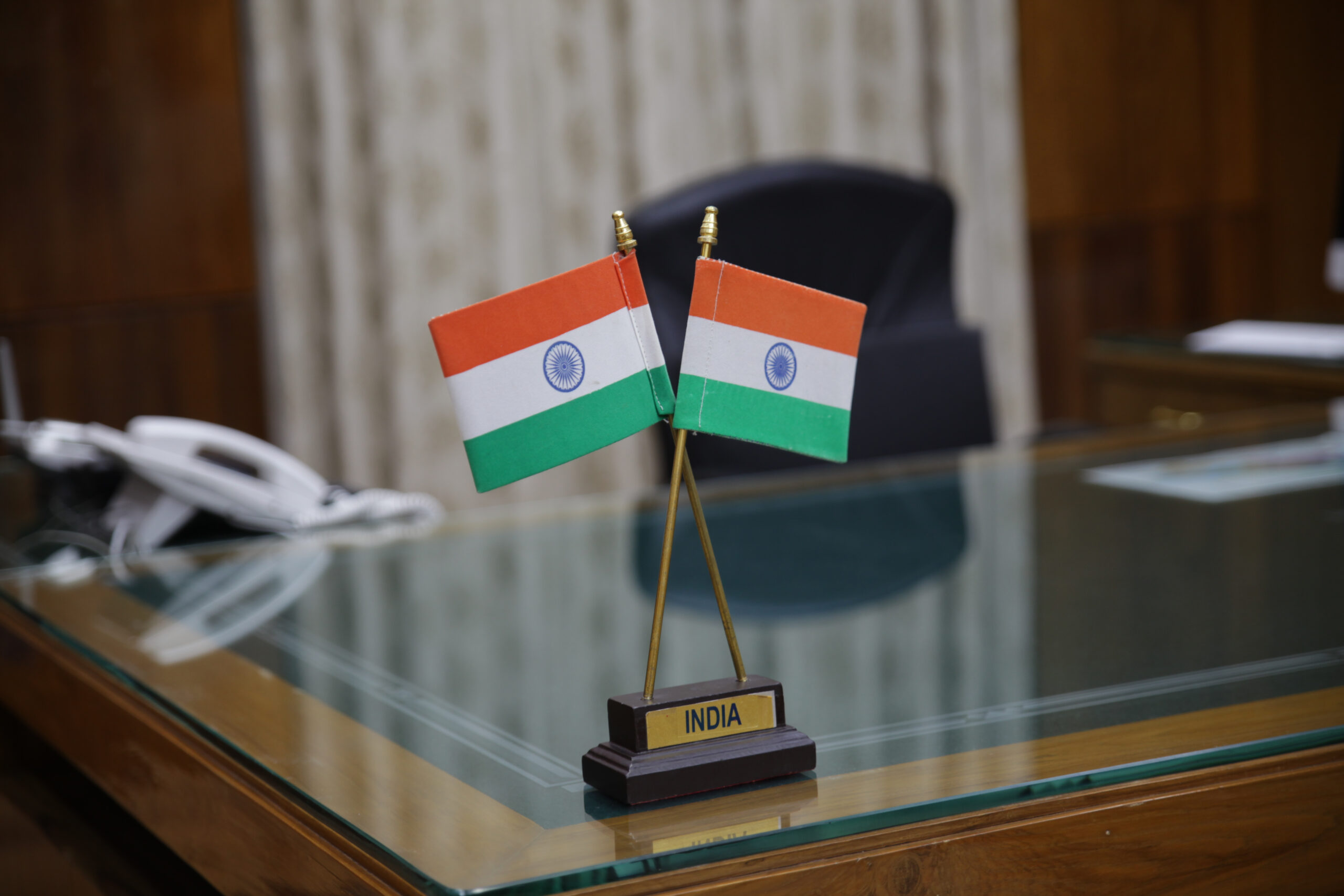
☝️ At a glance
- MBBS is a rewarding career path for those who appreciate medicine and helping others, but it requires significant dedication and hard work.
- If you are passionate about public service and leadership, IAS may be the right fit for you. It's a renowned yet tough path.
- Both MBBS and IAS have unique benefits. Consider which best fits your particular goals and passions.
- Think about your interests and strengths carefully. The ideal path is the one that aligns with your genuine calling.
Doctor vs IAS officer
The decision to pursue MBBS or IAS (Indian Administrative Service) is a personal one based on your skills, hobbies, and professional objectives. Different career routes are available in both disciplines, so it's crucial to thoroughly weigh your possibilities before choosing.
To become a doctor, you must get an MBBS (Bachelor of Medicine and Bachelor of Surgery), a professional degree in the medical industry. A career in medicine could be a good fit for you if you have a strong interest in treating people's illnesses, appreciate science, and have a passion for medicine. But bear in mind that studying MBBS can be difficult and demanding. It calls for a great deal of effort and commitment.
The Indian Administrative Service, or IAS, is a highly regarded civil service in India that entails performing a variety of administrative tasks for the government. An IAS career may be a suitable fit for you if you have a strong desire to serve the public, are adept at leadership and communication, and want to help the nation progress. But bear in mind that IAS demands a great deal of planning, diligence, and commitment, and the selection process can be extremely competitive.

Become a global doctor with MBBS abroad!
Studying abroad can be affordable and stress-free with futureMBBS:
- World-recognized universities with English-taught programs
- On-site support in partner university cities
- Guaranteed placements & internships for hands-on experience
From selecting universities and supporting you with the application process to orientation and finding accommodation – we are at your side.
Overview of MBBS
A professional degree in the medical industry, the MBBS (Bachelor of Medicine and Bachelor of Surgery) is eagerly sought for by students who have a strong interest in medicine and hope to become doctors. The goal of the MBBS program is to provide students with clinical skills and a solid foundation in the medical sciences so they can identify and treat a wide range of medical disorders.
In India, the MBBS program lasts for five years on average, including a year-long internship. Anatomy, physiology, biochemistry, pharmacology, pathology, microbiology, and forensic medicine are among the topics covered in the course curriculum. Additionally, students participate in clinical rotations in a variety of specialities, including general medicine, paediatrics, surgery, obstetrics and gynaecology, orthopaedics, ophthalmology, and ENT (ear, nose, and throat).
Which is best IAS or doctor, MBBS is a demanding degree that calls for a great deal of effort and commitment. It is expected of students to participate in practical sessions, attend lectures on a regular basis, and prepare for tests. In order to connect with patients and their families, they also need to possess strong interpersonal and communication skills.
Graduates with an MBBS can follow a variety of job paths after graduating, such as:

Medical Professional: MBBS graduates can find employment in hospitals or private clinics as family doctors or general practitioners. They are qualified to diagnose and treat a wide range of illnesses, write prescriptions for drugs, and counsel patients on preventive healthcare.
Specialisation: Graduates of the MBBS program have the option to specialise in a number of medical fields, including gastroenterology, neurology, cardiology, endocrinology, and oncology. Specialisation necessitates further training in the selected field and can take three to seven years.
Government Jobs: MBBS graduates might become medical officers or physicians in government hospitals and clinics. Additionally, they can take the Civil Services Examination and join the Indian Army, Navy, or Air Force as Medical Officers, among other government departments. Future career chances for MBBS graduates would expand if the government were to boost its investment in the healthcare sector.
Private Practice: MBBS graduates are qualified to open their own private medical practices and treat patients there. The private healthcare industry is anticipated to expand in the next years due to the rising need for high-quality medical care, which will present more chances for physicians to open their own offices or hospitals.
Research: By obtaining a Master's or Ph.D. in medical sciences, MBBS graduates can potentially pursue a career in medical research. They can contribute to the creation of novel medications and medical technology by working for pharmaceutical corporations or research organisations.
Global Opportunities: Graduates of MBBS programs can also look for international medical opportunities. They can help to the advancement of healthcare in other nations by working in hospitals or research facilities abroad. The need for qualified physicians with international experience is anticipated to increase in the future due to the healthcare sector's growing integration and globalisation.
A well-respected and fulfilling career, MBBS offers lots of chances for both professional and personal development. But it's crucial to remember that earning an MBBS involves a significant time, energy, and money commitment.

Study medicine abroad with 100% support!
futureMBBS offers full support to make your dream of studying medicine abroad a reality.
- Hassle-free admission guidance
- Fast-tracked visa processing
- Post-arrival support, including accommodation assistance
Overview of IAS services
An Indian government employee, an Indian Administrative Service (IAS) officer is tasked with a variety of administrative duties. The Union Public Service Commission (UPSC) administers the Civil Services Examination, which is used to recruit IAS officers. Along with the Indian Police Service (IPS) and the Indian Forest Service (IFS), the IAS is one of the three All India Services (AIS).
Implementing government programs, upholding law and order, and fostering social and economic development are the duties of IAS officers. Can a diploma holder apply for UPSC? They operate at several levels of government, from the district to the central level, and are in charge of duties including organising and carrying out government programs, overseeing public services, and managing government departments.
An IAS officer's career path is organised, with officials beginning in junior roles and advancing to higher positions over time. Assistant Commissioner, Deputy Commissioner, Joint Secretary, Secretary, and Cabinet Secretary are among the ranks in the hierarchy. Based on the officer's performance, seniority, and experience, promotions are given.
IAS officers are entitled to a number of advantages and benefits, including a respectable pay, housing provided by the government, and other amenities including health insurance, travel reimbursements, and retirement benefits. Can a diploma holder apply for UPSC? Diploma holders are also eligible for a number of additional opportunities, including training programs, deputations to other government departments, and overseas postings.
All things considered, the job of an IAS officer is essential to ensuring the smooth operation of the government and the provision of public services to India's population. Although the job is hard and demanding, it's also rewarding and offers chances for advancement and personal development.
IAS Officer Examination
The Union Public Service Commission (UPSC) administers the Indian Administrative Service (IAS) examination in order to choose candidates for the IAS and other All India Services (AIS), including the Indian Forest Service (IFS) and the Indian Police Service (IPS). It's an extremely competitive exam that takes a lot of preparation.
The IAS examination consists of three stages:
1. Preliminary examination: This objective test assesses the candidate's aptitude and general knowledge. It consists of two papers: Paper I assesses the candidate's understanding of general science, economics, geography, history, and current events; Paper II assesses the candidate's analytical, logical thinking, and comprehension skills.
2. Main exam: The candidate's knowledge and comprehension of a variety of areas are assessed through a written exam. There are nine total papers in it, two of which are qualifying in character and seven of which are given merit credit. Essay writing, general studies, Indian languages, English, and optional subjects are only a few of the many topics covered in the papers.
3. Personality test (interview): This is the last part of the test, when a panel of specialists interview the candidate to evaluate their communication style, personality, and fit for the IAS.
It is well known that the IAS exam is quite competitive and demanding, hence in order to do well, students must study hard. Studying the required material, keeping up with current events through reading periodicals and newspapers, taking practice exams, and honing writing and communication skills are all part of the preparation process.
Those who pass the IAS exam are assigned, in accordance with their preference and rating, to different governmental cadres or services. Those who pass the exam and get entry into the Indian Administrative Service (IAS) can expect a stimulating and demanding career in public service, since it is one of the most prominent and sought-after civil services in India.
IAS Exam Age Limit and Attempts
Age restrictions and the maximum number of attempts are among the qualifying requirements for the Indian Administrative Service (IAS) test that have been established by the Union Public Service Commission (UPSC).
The age limit varies according to the candidate's category for the IAS examination.
Candidates are also allowed a certain number of attempts to clear the IAS examination:
Category | Age Limit | Date of Birth Range | Maximum Attempts |
General | 21 to 32 years | Born between August 2, 1989, and August 1, 2000 | 6 |
OBC | 21 to 35 years | Born between August 2, 1986, and August 1, 2000 | 9 |
SC/ST | 21 to 37 years | Born between August 2, 1984, and August 1, 2000 | Unlimited (No restriction) |
Candidates should note that both the number of attempts and age limits affect eligibility for the IAS exam. Once the limit is reached, they cannot apply again.
Whether IAS or being a doctor is better depends on personal goals. Both are prestigious careers.
Diploma holders are not eligible for UPSC; a bachelor's degree is required. It's crucial to check the eligibility criteria carefully before applying.
Difference Between MBBS & IAS
The career trajectories of MBBS (Bachelor of Medicine and Surgery) and IAS (Indian Administrative Service) are significantly dissimilar, requiring various levels of education and experience.
1. Educational Requirements: Physics, chemistry, and biology must be taken as core topics in high school in order to qualify for the MBBS program. A student must gain admission to a medical institution and pass entrance tests, such as the National Eligibility and Entrance Test, in order to pursue an MBBS. However, in order to become an IAS officer, a student must pass the Union Public Service Commission's (UPSC) Civil Services Examination, which calls for a bachelor's degree in any field.
2. Professional Requirements: The MBBS degree prepares students to become licensed physicians and is a professional degree in the medical area. Graduates of the MBBS program have two options: they either become general practitioners or specialise in a particular area of medicine. IAS, on the other hand, is a service that offers government administrative help. IAS personnel oversee government departments, carry out policy implementation, and advise ministers among other administrative responsibilities.
3. Range of Work: MBBS graduates are employed in the medical field and are in charge of patient diagnosis and treatment. They are able to work in clinics, hospitals, and research facilities. IAS officers, on the other hand, operate in the government sector and are responsible for managing numerous departments and implementing government programs. They can work in a variety of departments, including finance, law and order, education, and health.
4. Compensation: MBBS graduates who work in the healthcare industry can expect to make a solid living, particularly if they open their own private practice. Government doctors are paid according to their experience and grade. A competitive salary and benefits package, including housing, transport, and other allowances, are provided to IAS personnel. IAS officers' pay is likewise determined on their experience level and grade.
In summary, the prerequisites for MBBS and IAS are quite different, requiring separate training and experience. While IAS supports government administration, MBBS prepares students to become licensed physicians. Each professional path has a different range of responsibilities and pay scale. It is imperative that students select a job route that corresponds with their interests, abilities, and goals.
Can a doctor become an IAS?
You may become an IAS official as a doctor, yes. There are no particular limitations because of a person's occupation. Physicians are eligible to take the UPSC Civil Services Examination, and if they pass, they would have the same opportunities to become IAS officials as candidates from other backgrounds.
Who earns more: the doctor or the IAS?
The average income for MBBS doctors is predicted to be between INR 2.5 LPA and INR 15 LPA, while IAS officers are expected to earn around 14 LPA. However, the salaries of doctors and IAS officers may range significantly for a variety of reasons.
Your medical career abroad starts here!
Thinking of pursuing MBBS abroad? Don’t just dream it, do it!
Start your MBBS journey!
Frequently asked questions (FAQs)
What are the main differences between pursuing MBBS and becoming an IAS officer?
MBBS focuses on medical training and patient care, leading to careers in healthcare, while IAS involves administrative duties, policy implementation, and public service within the government.
How long does it take to complete MBBS compared to the IAS selection process?
MBBS typically requires 5 years of study plus a year-long internship. The IAS selection process includes preliminary exams, main exams, and an interview, which can take several months to prepare for and complete.
What are the career prospects for MBBS graduates versus IAS officers?
MBBS graduates can work as doctors, pursue specializations, engage in research, or join the government medical services. IAS officers work in various administrative roles, manage government programs, and have opportunities for promotions and specialized postings.
Can a doctor become an IAS officer?
Yes, a medical professional can pursue the IAS path by preparing for and passing the UPSC Civil Services Examination. Your background won’t affect eligibility, but preparation and dedication are crucial.




